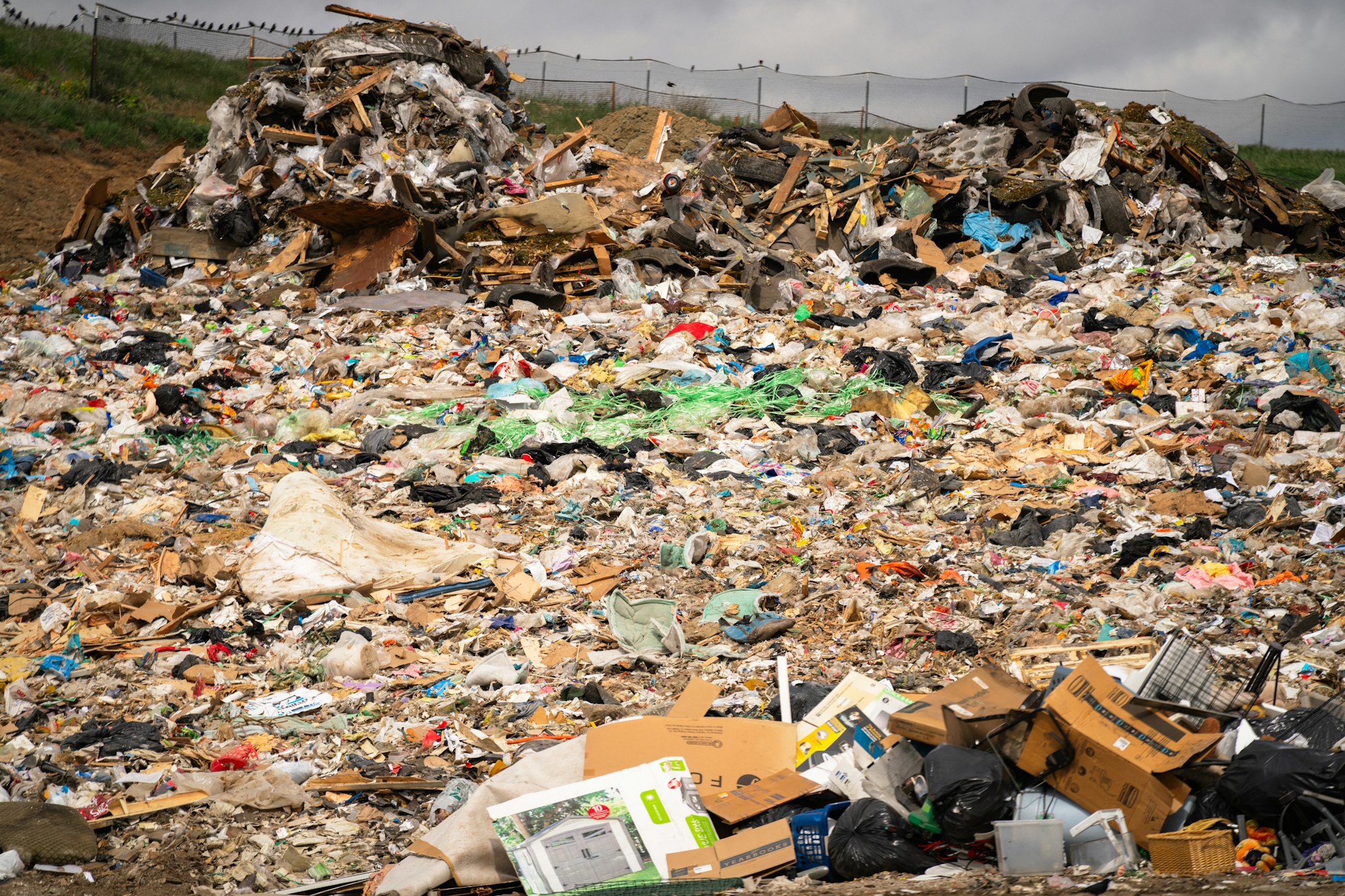Does Food Decompose in the Landfill?
California's state law SB 1383 requires residents and businesses to divert their organic waste from the landfill by putting it into the green bin instead. Organic waste includes food waste, yard waste, and food-soiled paper products.
But why is this so important? Well, when we send organic waste like food to the landfill, it gets buried along with all of our other trash. Since it's buried, organic waste don't have access to air, so it begins to decompose anaerobically, aka without air. Decomposition is an important natural process that requires the right conditions to do properly-- and organic waste in the landfill doesn't have access to the air needed to kickstart that process. In this unnatural environment, the decomposition process slows down, and organic waste begins to emit methane as it rots. Methane is an extremely powerful greenhouse gas, over 80 times more potent than CO2.
By removing our organic waste from the landfill, we can slow the release of methane, making our air cleaner and slowing the effects of climate change. Food waste that you put in the green bin goes to a facility in SLO County, where it's turned into organic compost used on local farms.
We know that putting your food scraps in the green bin can be icky sometimes. Just remember that your actions have a big impact on the health of our community. This everyday act of good for the planet is how we work together to keep our beautiful home clean.

